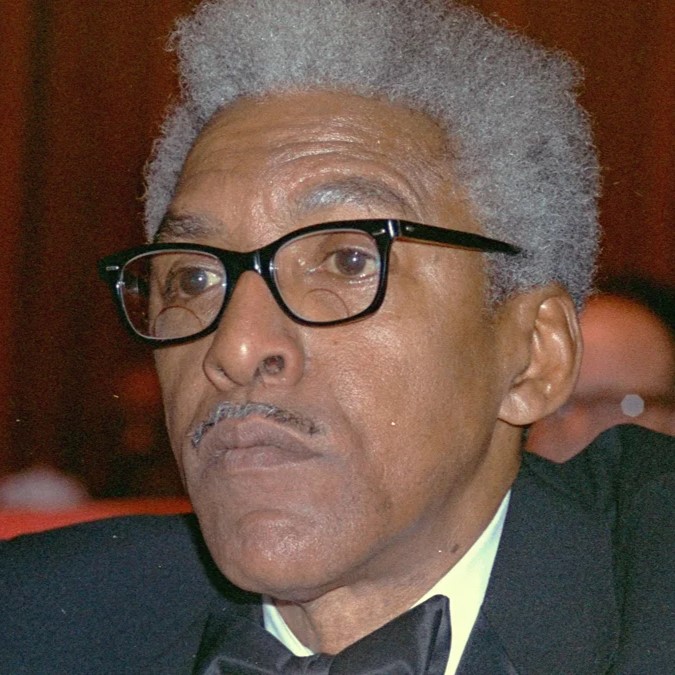GAZA CITY — The escalating conflict between Israel and Hamas has once again thrust the Middle East into the global spotlight, with repercussions felt across political and ideological spectrums worldwide.
This TRENDS report delves into the nuanced positions of various Western political figures, unveiling a multifaceted blend of support, criticism, and calls for humanitarian intervention. While Israel’s right to self-defense remains a consistent theme, there’s an increasing emphasis on the humanitarian crisis unfolding in Gaza.
Notably, figures like Bernie Sanders, traditionally viewed as advocates for marginalized communities, have refrained from demanding a full ceasefire, opting instead to champion “humanitarian pauses.” This perspective, reflecting the views of other Western leaders, highlights the delicate interplay of geopolitics, public sentiment, and historical ties shaping the West’s reaction to the ongoing turmoil.

However, sentiment among the Western public appears to be shifting. Large-scale pro-Palestinian rallies in Western cities, with some even spearheaded by Jewish communities, suggest a widening gap between governmental positions and public sentiment.
The support of Western leftists for Israel, particularly in light of recent events, has caught many off guard. Figures like British Labour leader Keir Starmer and U.S. progressive politician Elizabeth Warren have reiterated calls for “humanitarian pauses” over ceasefires.
Still, a historical overview shows that support for Israel among American socialists has deep roots, anchored in democratic principles and the right to self-determination. As the conflict escalates and global outcry amplifies, the evolution of these dynamics and their implications for future diplomatic endeavors remain to be seen.

“Israel has a right to defend itself against Hamas. But innocent Palestinians also have a right to life and security. I’m advocating for a humanitarian pause by all parties so that essential aid can reach the suffering people of Gaza and for the immediate release of all hostages,” stated former American presidential candidate Bernie Sanders, a leading U.S. progressive politician, who has consistently championed the rights of marginalized and occupied communities worldwide.
After reiterating Israel’s right to self-defense, Sanders, in a subsequent speech in the U.S. Senate, advocated for a “humanitarian pause,” ensuring that aid reaches the people of Gaza and hostages are promptly released.
However, Sanders notably refrained from demanding a ceasefire, a decision that garnered criticism online. “It’s embarrassing that Secretary Blinken called for the smallest thing possible, a humanitarian pause, before you did,” tweeted Waleed Shahid in response. Another user, Sultan A Choudhary, commented, “It’s insane that we’re demanding to just pause the genocide.”
Sanders also endorsed a resolution unanimously passed by the US Senate, which condemned pro-Palestine student protesters as being “in solidarity with Hamas” and labeled them anti-Semitic. This resolution urged full and unwavering support for Israel in its conflict with Gaza.

Sanders’ stance, typically associated with far-left ideologies, epitomizes the Western perspective on the ongoing Middle East conflict: a nearly unanimous backing for Israel that transcends both liberal and conservative boundaries.

Despite witnessing massive pro-Palestinian rallies, including those spearheaded by the Jewish community, Western governments have largely remained steadfast in their positions, with few exceptions.
The Western Left’s endorsement of Israel’s robust response to the October 7 Hamas attack, or at the very least, their tempered criticism of Tel Aviv’s actions, has raised eyebrows.
British Labour leader Keir Starmer, for instance, expressed unwavering support for Israel. Speaking to LBC radio’s Nick Ferrari on October 11, Starmer stated, “Israel does have that right, must have that right, to defend herself, and Hamas bears responsibility.”
In contrast, Jeremy Corbyn, who led the Labour Party from 2015 to 2020, has been vocal in his support for Palestinians. “People in Gaza are dying in the darkness. This unthinkable horror cannot be undone — and history will not forgive those who refused to treat Israeli and Palestinian lives with equal worth. Please, we need a ceasefire, now,” Corbyn expressed on Twitter.
Another Labour Party leader, London Mayor Sadiq Khan, diverged from his party’s stance by calling for a ceasefire in the Israel-Hamas conflict on Friday. This contrasts with the party’s broader appeal for a humanitarian pause to allow aid into Gaza, which is under Israeli blockade.

However, Khan’s position hasn’t shifted the prevailing sentiment among progressive voices, many of whom have hesitated to take a firm stance against Israel.
US progressive politician and former presidential candidate Elizabeth Warren also advocated for “humanitarian pauses” and the release of hostages in the Israel-Hamas conflict. “Israel has a right to defend its citizens after Hamas’s terrorist attacks, which have plunged the region into chaos and resulted in the loss of thousands of lives. The conflict in Gaza has escalated into a humanitarian crisis, taking the lives of innocent people,” read a statement she released alongside nine other senators. The statement further emphasized the U.S. position presented at the United Nations, calling for unhindered humanitarian assistance for civilians and the immediate release of all hostages.

Katherine Clark, a member of the Congressional Progressive Caucus, which represents the most left-leaning members of the U.S. Democratic Party, has refrained from condemning Israel’s actions in Gaza. However, she was quick to condemn Hamas’s actions in Israel. “I strongly condemn the brutal terrorist attack by Hamas against innocent civilians in Israel. The violence is unprovoked and horrifying, and my thoughts are with the grieving families and communities under attack,” she tweeted on October 7. This was followed by another tweet the same day, stating, “House Democrats stand with our ally and friend, Israel. We unequivocally support Israel’s sovereignty and its right to defend itself.”
Historically, support for Israel among US socialists dates back decades. During the 1960s and 1970s, prominent figures in the democratic socialist movement, such as Michael Harrington and Bayard Rustin, were staunch supporters of Israel.
The unwavering support for Israel among Western socialists during the 1960s and 1970s was deeply rooted in their commitment to democracy and self-determination. Michael Harrington, a leading voice in democratic socialism, viewed Israel as a shining example of democracy in a region dominated by autocratic regimes. He believed that the historical journey of the Jewish people and their quest for self-determination were encapsulated in Zionism. To Harrington, supporting Israel was a natural extension of his foundational beliefs.

In times of conflict, such as the 1967 Six-Day War and the 1973 Yom Kippur War, Harrington was at the forefront, rallying American socialists to advocate for U.S. intervention in support of Israel. His close ally, Bayard Rustin, a pivotal figure in the civil rights movement, perceived Israel as a democratic oasis surrounded by adversarial nations.
Rustin was convinced that safeguarding Israel’s existence was paramount for upholding democratic values globally. This sentiment wasn’t exclusive to Harrington and Rustin. Major socialist entities, including the Socialist Party, Young People’s Socialist League, and Democratic Socialist Organizing Committee, consistently endorsed Israel in their official platforms. Their steadfastness remained unshaken, even as global dynamics evolved.
However, the dawn of the 21st century brought a paradigm shift. Over the last two decades, the stance of Western socialists towards Israel began to waver. The rise of the Democratic Socialists of America, the proliferation of the Boycott, Divestment, and Sanctions (BDS) movement, and the growing influence of intersectional and decolonization ideologies played pivotal roles in this transformation. Many newer members proudly embraced the BDS movement, drawing parallels between Israel’s actions towards Palestinians and apartheid-era South Africa.

This ideological shift strained the once robust support for Israel within American socialist groups. Organizations like the DSA and several left-leaning media outlets started holding Israel accountable for regional tensions, a marked departure from their previous positions.
The ongoing conflict between Israel and Palestine has deeply divided global opinion. The chasm between Western and Muslim-majority nations is particularly evident. Historically, Western support for Israel has transcended political affiliations. Yet, as the situation in Gaza deteriorates and global sentiment turns increasingly against Israel, Western nations might find themselves reevaluating their positions. Notably, within the US, the Democratic Party is already grappling with internal dissent over President Biden’s unwavering endorsement of Israel.








